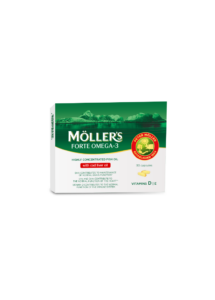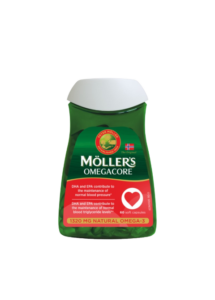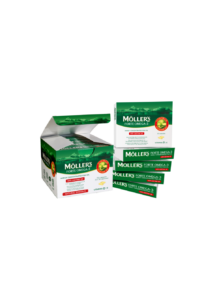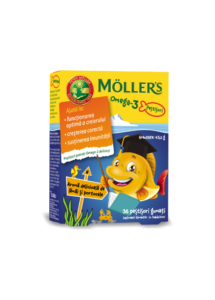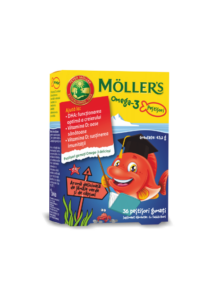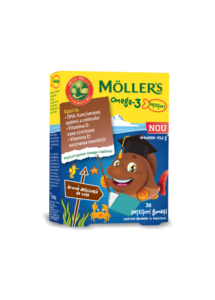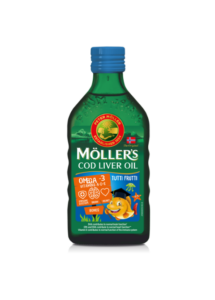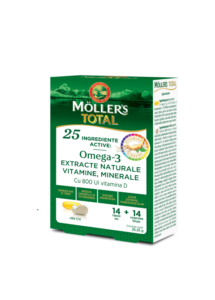Slijedite li staro pravilo da uzimate ulje jetre bakalara u svakom mjesecu koji ima “r” u nazivu? No jesu li dodaci vitamina D doista samo za zimske mjesece?
Home » Zašto uzimati dodatke vitamina D ljeti?

Uvijek su nam govorili da je važno da tijekom zime unosimo dovoljno vitamina D. S druge strane, ljeti nam govore da ne trebamo dodatke vitamina D jer smo više izloženi sunčevoj svjetlosti.
Pročitajte više članaka o vitaminima i mineralima
Ali britanska ljeta mogu biti ćudljiva, blago rečeno. Što učiniti kada se sunce skriva iza oblaka, a kiša pada danima? Ostanete unutra ili se pokrijete odjećom kad izađete van.
A kad sunce izađe, nanosite kremu za sunčanje, koja doduše štiti vašu kožu od štetnih sunčevih zraka, ali također sprječava stvaranje važnog vitamina D.
Zbog toga bi moglo biti mudro ne samo uzimati dodatke vitamina D zimi, već tijekom cijele godine.
Što vitamin D čini za vas
Vitamin D je dobar za vaše zube i pomaže vam u održavanju normalne strukture kostura. Također pomaže vašem imunološkom sustavu da normalno funkcionira – drugim riječima, pomaže vam da ostanete zdravi.
Nedostatak vitamina D nije tako raširen na južnoj hemisferi kao što je to slučaj sa sjevernom klimom. Međutim, imigranti s tamnijom kožom mogu otkriti da im je potreban dodatni vitamin D kada se presele u sjevernije zemlje s manje sunca.
Starije osobe također bi trebale biti posebno oprezne kako bi osigurale unos dovoljno vitamina D za održavanje zdravog kostura.
Jedan od najboljih dodataka vitamina D
Malo je namirnica koje sadrže velike količine vitamina D. Masna riba, poput lososa, skuše, haringe i pastrva neke su od namirnica bogatih vitaminom D. Također ćete pronaći manje količine vitamina D u mliječnim proizvodima obogaćenim vitaminom. Ako jedete 200 grama masne ribe dnevno, gotovo ćete dobiti svoju dnevnu dozu vitamina D. Međutim, za većinu ljudi čak ni normalna, zdrava prehrana neće osigurati dovoljno vitamina D.
Jedan od najboljih dodataka vitaminu D je ulje jetre bakalara, zbog čega mnogi ljudi uzimaju žlicu dnevno, tijekom cijele godine. To je najlakši način da osigurate dovoljno vitamina D.
What is good health?
Do you have a good lifestyle?
Lifestyle simply means the way in which you live. Health and lifestyle go hand in hand. You might feel you have a good lifestyle if you are physically active, eat healthily and generally experience a sense of wellbeing. Conversely, if you want good health you should also have a good lifestyle.
Physical activity is the major contributor to a good lifestyle, but diet, drugs, stress, sleep and social conditions are also play an important role. Being able to use the body properly to avoid injury also affects lifestyle. Physical activity can also prevent depression and help you to recover more quickly from mental illness, both of which obviously affect your lifestyle.
Diet can be a difficult topic for many. Perhaps you eat too much or too little or maybe you find it hard to know what foods to combine to have a balanced diet. It’s also important to eat food that contains important vitamins, minerals and dietary fibre, omega-3 and antioxidants. On top of all this, you also need to get enough energy, protein and the correct fatty acids. The requirement for these nutrients changes throughout your life. When you are older you also have different requirements than children and younger adults. Women also have different requirements than men. Pregnant and breastfeeding mothers also have special requirements.
When you get older, you lose muscle mass and your body requires less energy and therefore less food. You may lead a less active life than you did before, which is why you require less food. However, your need for minerals, vitamins and other nutrients remains the same. Of course, there are plenty of healthy and active older people, but when you reach 70 to 80 years of age, it’s easier to become ill, especially during flu season.
Some steps you can take to improve your lifestyle and health are to:
- eat a healthy and varied diet
- stay active
- watch your weight
- avoid too much alcohol and don’t smoke
- get enough sleep
- think positive
- practise good hygiene
What is good quality of life?
The World Health Organisation (WHO) defines quality of life as a state where the individual can realise their potential, cope with normal stressful situations, work in a rewarding and positive way, and be able to contribute to others and society.
Quality of life is a wide and somewhat diffuse concept that includes joy in, and a desire for, life. These are values that are rather felt than measured, which in turn are based on personal environment and choices. Quality of life doesn’t necessarily depend on being healthy or sick. It’s the moments between worries, sorrows, problems and ailments that matter. For example, if you have a chronic illness, a feeling of mastery can be important when talking about quality of life.
To sum up, quality of life is a combination of health, lifestyle, networks and social support. It’s about experiencing joy, meaning in life, satisfaction, security and a sense of belonging, as well as being able to use your strengths. It’s also about feeling interest in life, coping with everyday situations and a being committed to something or someone. If you have good quality of life, you will be able to cope better with the inevitable stressful situations in life.
Naši proizvodi
-
MÖLLER'S FORTE OMEGA 30 kapsule
-
MÖLLER'S OMEGACORE
-
MÖLLER'S FORTE OMEGA 150 kapsule
-
MÖLLER'S OMEGA 3 RIBICE s okusom NARANČE I LIMUNA
-
MÖLLER'S OMEGA 3 RIBICE s okusom JAGODE
-
MÖLLER'S OMEGA 3 RIBICE s okusom COLE
-
MÖLLER'S OMEGA 3 ULJE JETRE BAKALARA s okusom TUTTI FRUTTI
-
MÖLLER'S OMEGA 3 ULJE JETRE BAKALARA s okusom LIMUNA
-
MÖLLER'S TOTAL
Saznajte više
Program vježbanja za starije osobe
ZDRAVE KOSTI ZDRAVO STARENJE
Zdrava prehrana tijekom trudnoće
MOZAK ZDRAVO STARENJE
Dobro zdravlje, način života i kvaliteta života – što sve to znači?
BAKALAR ZDRAVO STARENJE
Pronađite inspiraciju na našem Instagramu
This error message is only visible to WordPress admins
Error: Access Token is not valid or has expired. Feed will not update.
